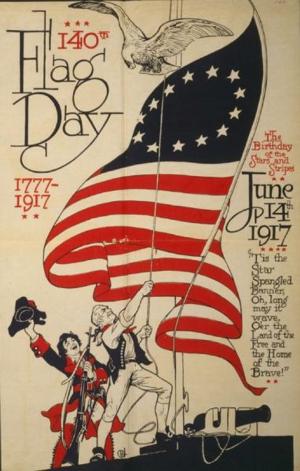Primitive Love and Love-Stories
Nonfiction, Religion & Spirituality, New Age, History, Fiction & Literature| Author: | Henry Theophilus Finck | ISBN: | 9781465501097 |
| Publisher: | Library of Alexandria | Publication: | March 8, 2015 |
| Imprint: | Language: | English |
| Author: | Henry Theophilus Finck |
| ISBN: | 9781465501097 |
| Publisher: | Library of Alexandria |
| Publication: | March 8, 2015 |
| Imprint: | |
| Language: | English |
Reference is made to a custom prevalent in northern India of employing the family barber to select the boys and girls to be married, it being considered too trivial and humiliating an act for the parents to attend to. In pronouncing such a custom ludicrous and outrageous we must not forget that not much more than a century ago an English thinker, Samuel Johnson, expressed the opinion that marriages might as well be arranged by the Lord Chancellor without consulting the parties concerned. Schopenhauer had, indeed, reason to claim that it had remained for him to discover the significance and importance of love. His ideas on the relations between love, youth, health, and beauty opened up a new vista of thought; yet it was limited, because the question of heredity was only just beginning to be understood, and the theory of evolution, which has revolutionized all science, had not yet appeared on the horizon. The new science of anthropology, with its various branches, including sociology, ethnology, and comparative psychology, has within the last two or three decades brought together and discussed an immense number of facts relating to man in his various stages of development—savagery, barbarism, semi-civilization, and civilization. Monographs have appeared in great numbers on various customs and institutions, including marriage, which has been discussed in several exhaustive volumes. Love alone has remained to be specially considered from an evolutionary point of view. My own book, Romantic Love and Personal Beauty, which appeared in 1887, did indeed touch upon this question, but very briefly, inasmuch as its subject, as the title indicates, was modern romantic love. A book on such a subject was naturally and easily written virginibus puerisque; whereas the present volume, being concerned chiefly with the love-affairs of savages and barbarians, could not possibly have been subjected to the same restrictions. Care has been taken, however, to exclude anything that might offend a healthy taste. If it has been necessary in some chapters to multiply unpleasant facts, the reader must blame the sentimentalists who have so persistently whitewashed the savages that it has become necessary, in the interest of truth, to show them in their real colors. I have indeed been tempted to give my book the sub-title “A Vindication of Civilization” against the misrepresentations of these sentimentalists who try to create the impression that savages owe all their depravity to contact with whites, having been originally spotless angels. If my pictures of the unadulterated savage may in some cases produce the same painful impression as the sights in a museum’s “chamber of horrors,” they serve, on the Other hand, to show us that, bad as we may be, collectively, we are infinitely superior in love-affairs, as in everything else, to those primitive peoples; and thus we are encouraged to hope for Further progress in the future in the direction of purity and altruism
Reference is made to a custom prevalent in northern India of employing the family barber to select the boys and girls to be married, it being considered too trivial and humiliating an act for the parents to attend to. In pronouncing such a custom ludicrous and outrageous we must not forget that not much more than a century ago an English thinker, Samuel Johnson, expressed the opinion that marriages might as well be arranged by the Lord Chancellor without consulting the parties concerned. Schopenhauer had, indeed, reason to claim that it had remained for him to discover the significance and importance of love. His ideas on the relations between love, youth, health, and beauty opened up a new vista of thought; yet it was limited, because the question of heredity was only just beginning to be understood, and the theory of evolution, which has revolutionized all science, had not yet appeared on the horizon. The new science of anthropology, with its various branches, including sociology, ethnology, and comparative psychology, has within the last two or three decades brought together and discussed an immense number of facts relating to man in his various stages of development—savagery, barbarism, semi-civilization, and civilization. Monographs have appeared in great numbers on various customs and institutions, including marriage, which has been discussed in several exhaustive volumes. Love alone has remained to be specially considered from an evolutionary point of view. My own book, Romantic Love and Personal Beauty, which appeared in 1887, did indeed touch upon this question, but very briefly, inasmuch as its subject, as the title indicates, was modern romantic love. A book on such a subject was naturally and easily written virginibus puerisque; whereas the present volume, being concerned chiefly with the love-affairs of savages and barbarians, could not possibly have been subjected to the same restrictions. Care has been taken, however, to exclude anything that might offend a healthy taste. If it has been necessary in some chapters to multiply unpleasant facts, the reader must blame the sentimentalists who have so persistently whitewashed the savages that it has become necessary, in the interest of truth, to show them in their real colors. I have indeed been tempted to give my book the sub-title “A Vindication of Civilization” against the misrepresentations of these sentimentalists who try to create the impression that savages owe all their depravity to contact with whites, having been originally spotless angels. If my pictures of the unadulterated savage may in some cases produce the same painful impression as the sights in a museum’s “chamber of horrors,” they serve, on the Other hand, to show us that, bad as we may be, collectively, we are infinitely superior in love-affairs, as in everything else, to those primitive peoples; and thus we are encouraged to hope for Further progress in the future in the direction of purity and altruism















